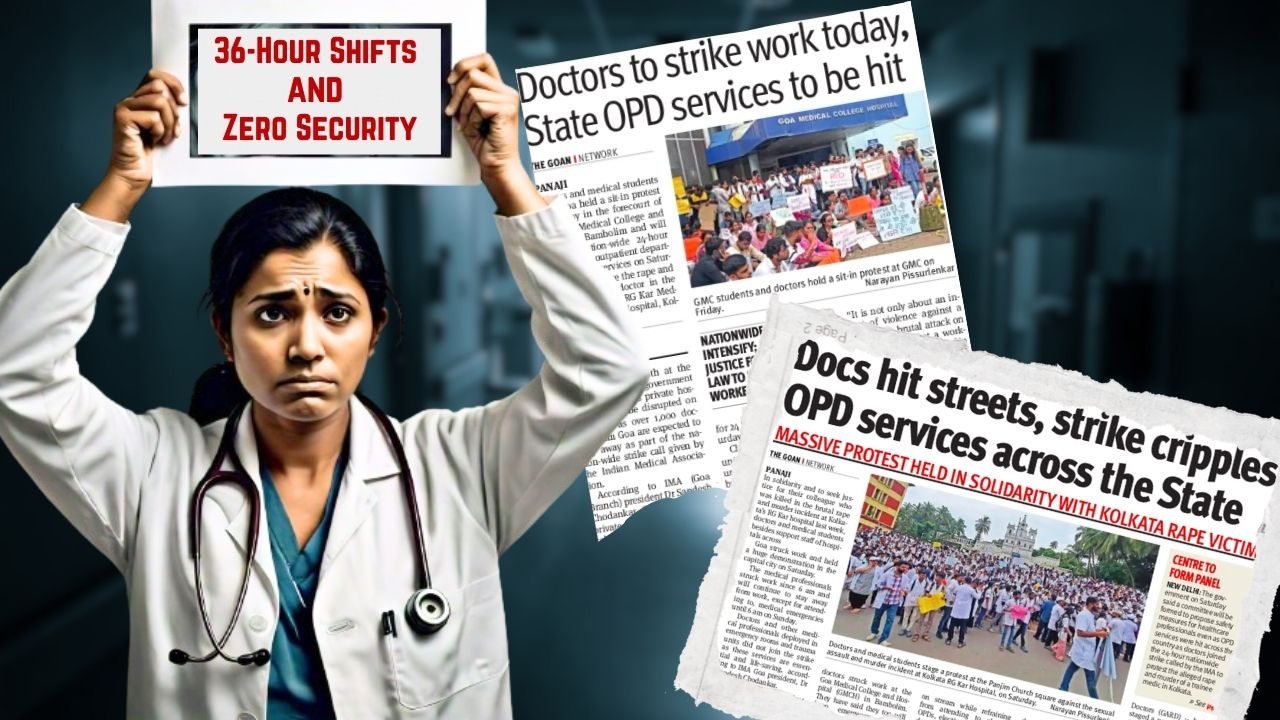
Panaji:
Female doctors across the State are voicing their deep concerns about the safety and working conditions in hospitals. These concerns have gained heightened attention following the tragic incident involving a 31-year-old trainee doctor in Kolkata, who was brutally raped and murdered while on duty. Her body, showing multiple injuries, was discovered on August 9 in a government teaching hospital, sparking nationwide protests.
Here are five critical issues highlighted by female doctors:
1. Neglect of healthcare workers’ safety: The horrifying incident in Kolkata underscores a broader issue—hospital staff, especially women, are often left vulnerable with no one checking on their well-being during long, isolated shifts. This lack of oversight and concern for those on duty is a serious failing of the healthcare system.
2. Inhumane work hours: Post-graduate doctors, particularly women, face gruelling work schedules, sometimes exceeding 36-hour shifts. In extreme cases, they are forced to work for three days straight with minimal breaks, leading to severe physical and mental exhaustion.
3. Lack of security: Female doctors frequently work without adequate security, leaving them exposed to potential threats, including aggression from patients' families. The absence of a secure working environment is a significant concern, especially during night shifts or in understaffed hospitals.
4. Inadequate rest facilities: Hospitals often lack proper rest rooms for doctors, forcing them to adapt to uncomfortable and unsuitable environments during breaks. This adds to the stress and fatigue that already plague healthcare workers.
5. Ignored vulnerabilities: Despite the evident risks, many hospitals continue to ignore the need for enhanced security measures. Security remains lax, and CCTV surveillance is often unreliable, leaving female doctors particularly vulnerable during their shifts.
This situation calls for immediate action from hospital administrations and government bodies to ensure the safety and well-being of healthcare workers, especially women, who are essential to the functioning of the healthcare system.